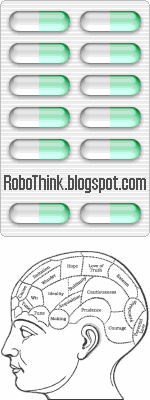Mass Extinctions and Super-Predators
 The rate at which animal and plant species are becoming extinct has now surpassed that of earlier mass extinctions known only from the fossil record. Many familiar species are in danger. The usual explanation offered for previous mass extinctions has been asteroid or meteor impacts, but there's a new theory: genetic mutations that lead to super predators. And in the current mass extinction human beings seem to act like super-predators.
The rate at which animal and plant species are becoming extinct has now surpassed that of earlier mass extinctions known only from the fossil record. Many familiar species are in danger. The usual explanation offered for previous mass extinctions has been asteroid or meteor impacts, but there's a new theory: genetic mutations that lead to super predators. And in the current mass extinction human beings seem to act like super-predators.As reported in an article in The Guardian newspaper, Adam Lipowski, a physicist, developed a computer model of genetic mutation and competition for food and living space. Most of the time, the simulation is populated by medium efficiency predators, but every so often genetic mutations lead to the evolution of a highly efficient beast (or possibly even a parasite or virus). It quickly decimates sources of prey, which in turn leads to its own decline. The newspaper asked if humans are the latest super-predator. Lipowski replied "It is the feeling that we have, but our model is too abstract to say this for sure."
The American Institute of Biological Sciences has compiled a comprehensive analysis of the circumstances surrounding the present biodiversity crisis, together with an extensive list of information resources: The Sixth Extinction. There's a short summary of the problem at the American Museum of Natural History's Hall of Biodiversity website.
The biologist Edward O. Wilson, who is probably best known for his book Sociobiology: The New Synthesis, wrote an article titled "Is Humanity Suicidal?" — re-published by Cosmos Magazine in September 2005. It's an updated version of the original that appeared the New York Times Magazine in 1993. He said:
"The human species is, in a word, an environmental abnormality. It is possible that intelligence in the wrong kind of species was foreordained to be a fatal combination for the biosphere."Back in 1970, the author of the anti-war novel Slaughterhouse Five, Kurt Vonnegut, had this to say in an address to the Graduating Class at Bennington College:
"We don't need more information. We don't need bigger brains. All that is required is that we become less selfish than we are."
- Related blog article:
Human Brain Hubris - Outside links:
Extinctions in recent history

<< Home